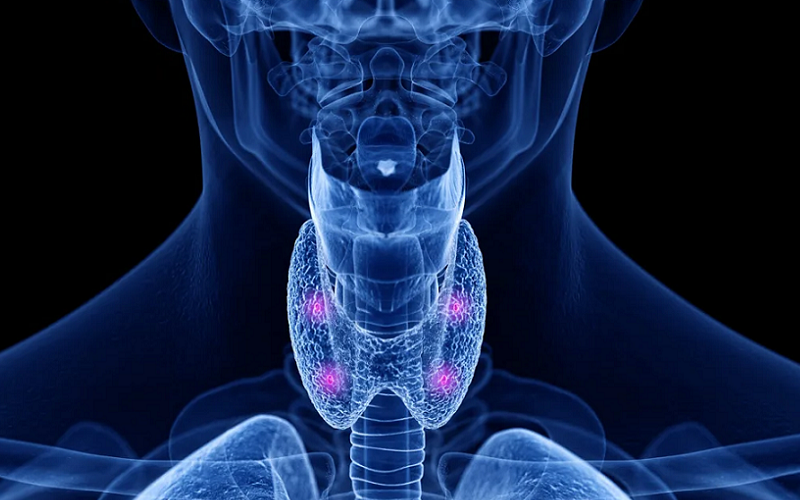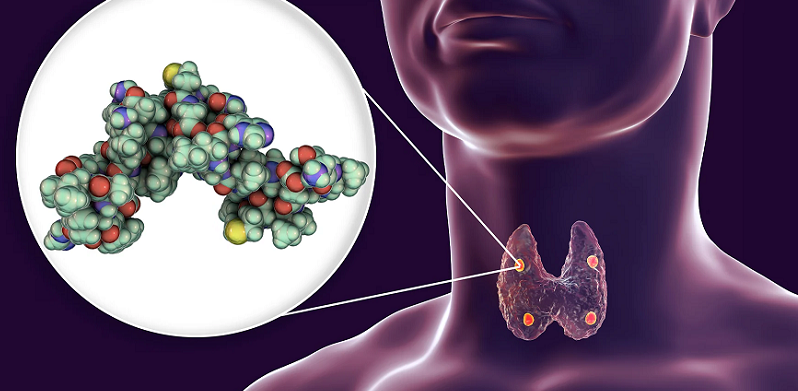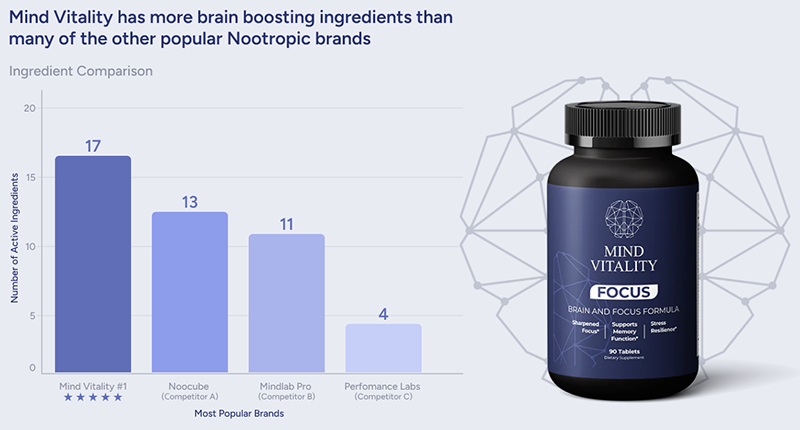
In the intricate tapestry of the human body, hormones play a pivotal role in orchestrating a range of physiological processes. Among these, the Parathyroid Hormone (PTH) emerges as a key player, particularly in the regulation of calcium – a mineral vital not just for bone health, but for its lesser-known yet crucial role in cognitive functions. Here we uncover the nuances of how PTH operates, its indispensable role in maintaining calcium balance, and the consequential effects of this balance on our brain’s functioning. From memory formation to neuronal communication, the influence of PTH and calcium extends far beyond the skeletal framework, touching the very essence of our cognitive processes.
Contents
Understanding the Parathyroid Hormone (PTH)
The Parathyroid Hormone (PTH) is a crucial component of our endocrine system, with a pivotal role in maintaining our body’s calcium levels. Understanding this hormone’s functionality, production, and control mechanisms is essential for appreciating its broader impact on our health, particularly cognitive functions.
Definition and Function of Parathyroid Hormone (PTH)
PTH, a peptide hormone, is secreted by the parathyroid glands located behind the thyroid gland in the neck. It is primarily responsible for regulating serum calcium levels in our bloodstream. The hormone’s function is quintessentially a balancing act—it increases calcium levels in the blood by stimulating calcium release from bones, enhancing calcium reabsorption in the kidneys, and facilitating calcium absorption in the intestines by converting vitamin D to its active form.
The Role of PTH in Calcium Regulation
The regulation of calcium by PTH is a testament to the body’s commitment to maintaining homeostasis. Calcium, a vital mineral, is not just essential for bone strength but also plays a critical role in muscle function, nerve signaling, and blood clotting. When calcium levels drop in the blood, the parathyroid glands respond by releasing more PTH. Conversely, when calcium levels are high, PTH secretion decreases. This feedback loop ensures that calcium levels remain within a narrow, optimal range, crucial for the overall functioning of the body.
How PTH Is Produced and Controlled
The production and secretion of PTH are tightly regulated by the body’s calcium levels, particularly by the calcium-sensing receptors in the parathyroid glands. When these receptors detect low calcium levels, they trigger the release of PTH. In addition to calcium levels, factors such as magnesium and vitamin D also influence PTH secretion. For example, low vitamin D levels can lead to increased PTH production, as the body attempts to compensate for reduced calcium absorption from the intestines [1].
Calcium: A Vital Mineral for Brain Function
While calcium is commonly associated with bone health, its role in brain function is equally significant but often less recognized.
Calcium’s Role in the Nervous System
Calcium ions (Ca2+) are pivotal in the nervous system, playing a crucial role in various neural processes. These ions are involved in neurotransmitter release, neural excitability, and synaptic plasticity, which is the ability of synapses to strengthen or weaken over time. This adaptability is essential for learning and memory. Calcium facilitates the communication between neurons by triggering neurotransmitter release into the synaptic cleft, the gap between neurons. This release is fundamental for transmitting signals across the nervous system.
Impact of Calcium on Neuronal Communication
The influence of calcium on neuronal communication extends to the regulation of various neural circuits and pathways. For instance, in learning and memory, calcium’s role in long-term potentiation (LTP) and long-term depression (LTD) is critical. LTP enhances the strength of synaptic connections in response to frequent stimulation, while LTD weakens connections when stimulation is infrequent.
Both processes are calcium-dependent and crucial for encoding and retaining new information. Additionally, calcium’s involvement in these processes highlights its integral role in the adaptability and plasticity of the brain, which are essential for cognitive development and function [2].
Calcium Imbalances and Cognitive Implications
Calcium imbalances in the brain can lead to significant cognitive consequences. Hypocalcemia (low calcium levels) and hypercalcemia (high calcium levels) can disrupt normal brain function. For instance, hypocalcemia can lead to neuromuscular irritability, seizures, and cognitive disturbances like confusion and memory loss.
On the other hand, hypercalcemia can cause lethargy, depression, and cognitive impairment. Chronic imbalances may also contribute to the development of neurodegenerative conditions, suggesting that maintaining optimal calcium levels is crucial for long-term cognitive health.

Interplay Between PTH and Cognitive Functions
The relationship between the Parathyroid Hormone (PTH) and cognitive functions is a fascinating area of study, revealing how hormonal imbalances can affect our mental capabilities.
PTH and Memory Formation
Memory formation is a complex process that involves various brain regions and neurotransmitters. PTH indirectly influences this process through its regulation of calcium levels. As calcium plays a pivotal role in synaptic plasticity, which is crucial for memory encoding and storage, PTH, by regulating calcium, indirectly impacts these processes.
Research suggests that abnormal PTH levels can disrupt calcium homeostasis, potentially leading to impaired synaptic plasticity and, consequently, memory issues. For example, hyperparathyroidism, which leads to elevated levels of PTH, has been associated with memory deficits in some studies [3].
The Effect of PTH on Learning Processes
Learning, much like memory formation, relies heavily on the brain’s ability to adapt and change in response to new information, a process heavily influenced by calcium dynamics in the brain. PTH, by maintaining calcium balance, plays an indirect but significant role in learning. Studies have shown that disturbances in calcium regulation, possibly due to PTH imbalances, can affect the brain’s plasticity, thereby impacting learning abilities. This can manifest as slower learning curves or difficulty in acquiring new skills or information.
Research Findings on PTH and Cognitive Decline
The connection between PTH levels and cognitive decline, particularly in aging populations, is an area of growing research interest. Some studies have found a correlation between elevated PTH levels and an increased risk of cognitive decline and dementia, including Alzheimer’s disease.
This association is believed to be due to the role of PTH in calcium regulation, as calcium dysregulation is a known factor in the pathogenesis of neurodegenerative diseases. However, it is important to note that this research is still evolving, and the exact mechanisms linking PTH with cognitive decline are not yet fully understood [4].

Health Conditions Related to Parathyroid Dysfunction
Parathyroid dysfunction can lead to several health conditions, primarily affecting calcium balance, which in turn can have significant implications for overall health, including cognitive functions.
Hyperparathyroidism and Its Cognitive Effects
Hyperparathyroidism is characterized by excessive production of the Parathyroid Hormone (PTH), leading to elevated calcium levels in the blood (hypercalcemia). This condition can have several cognitive implications. Patients with hyperparathyroidism often report symptoms like fatigue, depression, and mental fogginess.
More severe cognitive impacts can include impaired memory, reduced concentration, and in some cases, confusion. The exact mechanism through which hyperparathyroidism affects cognitive functions is not fully understood, but it is believed to be related to the disruptive effects of high calcium levels on neural signaling and brain function [5].
Hypoparathyroidism and Brain Health
Conversely, hypoparathyroidism, characterized by inadequate PTH production, leads to low calcium levels in the blood (hypocalcemia). This condition can also affect cognitive functions. Symptoms can range from mild, such as tingling and muscle cramps, to more severe neurological manifestations like seizures and cognitive impairment.
Chronic hypocalcemia has been linked to anxiety, depression, and changes in personality. The cognitive effects are thought to stem from the essential role of calcium in neurotransmitter release and synaptic function, emphasizing the importance of balanced calcium levels for cognitive health.
Strategies for Managing Parathyroid Disorders
Managing parathyroid disorders effectively is crucial to mitigate their impact on cognitive and overall health. Treatment strategies depend on the underlying condition. For hyperparathyroidism, surgical removal of the overactive parathyroid gland(s) is often effective. In cases where surgery is not possible, medication to manage calcium levels can be used.
For hypoparathyroidism, treatment typically involves calcium and vitamin D supplements to maintain normal calcium levels. Regular monitoring and medical checkups are crucial for both conditions to ensure optimal management and to prevent long-term complications.
References
[1] Parathyroid Hormone: What It Is, Function & Levels
[2] Physiology, Parathyroid Hormone
[3] Hyperparathyroidism
[4] Parathyroid Hormone
[5] Primary hyperparathyroidism (Beyond the Basics)

